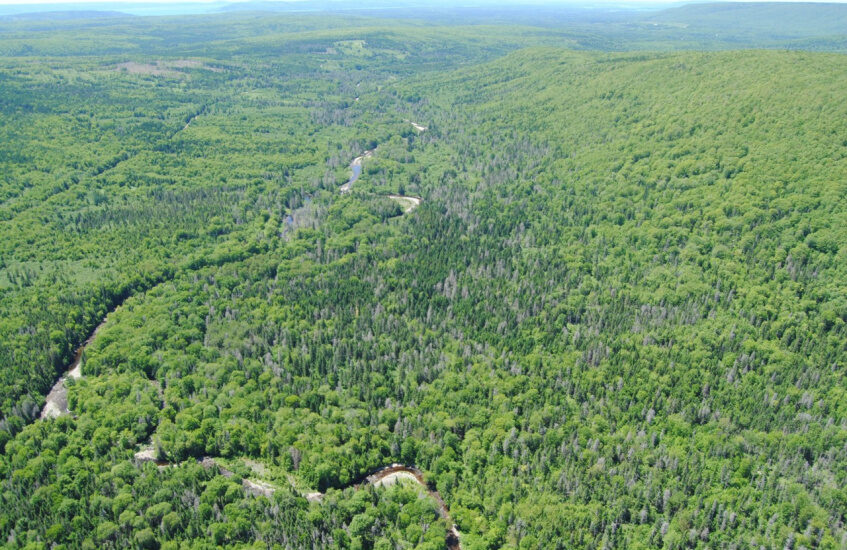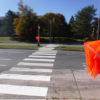
This presentation was delivered today to the committee hearing public responses to Bill 4, the Biodiversity Act, by Elizabeth Glenn-Copeland.
I am an author, theater artist and arts educator whose career over the past many decades has evolved at the intersection of arts and activism. I have always taken seriously the responsibility to exercise my democratic rights. In late 2020, we chose to relocate to Nova Scotia. I had spent the better part of a year as part of a writing residency at the Joggins Fossil Institute in 2018 to research and write my book, “Daring to Hope at the Cliff’s Edge”. We fell in love with the land and the people which led to us moving here.
Knowing, as so many of us do, that the climate crisis is not something abstract, but an immediate danger advancing at an alarming pace, I was comforted when I learned about the first pass of the Biodiversity bill and its goal: “to provide for the stewardship, conservation, sustainable use and governance of biodiversity in the Province.” Such a noble vision. Such a necessary vision!
And then came the changes, much of them due to fearmongering tactics from the forestry industry along with a group of private landowners. I have been following the threads of conversation from private landowners – “I don’t want some act telling me I can’t cut a road into my property because of some ‘species at risk’.” Though I would like to argue the basic truth espoused by our First Nations brothers and sisters, that we do not own the land, I will instead focus on this…
Laws are rules that bind people living in communities. They are meant to protect our safety, ensure our rights as citizens. In the case, therefore, of the landowners who oppose this bill, one might say their objections to this act have merit where the exercise of democratic rights are concerned. But they do not.
Consider this: when a person shows up with a full-blown covid 19 infection, his ‘rights’ do not extend as far as to allow him to continue to engage out in society as he pleases. To do so would infect tens to hundreds to thousands of other people, meaning his ‘small’ right to have his way is eclipsed by the larger collective rights of the many.
Similarly, in these times of discontinuous change, having passed multiple climate tipping points over the past many decades due to society’s denial of what is really going on—policy makers such as yourselves must be willing to exercise your substantial power for the public good. Thirty years ago we had the time to (as the new amendments to this act state), “work with private landowners in a voluntary fashion” with a view to helping “build trust in the new act.” We no longer have that time.
I understand that upwards of 70% of N.S. land is privately owned. Therefore it follows that for our government to weaken this act, such as the case with the new amendments, means the act will have no teeth.
Let’s look at other provinces who have set precedents in this area. Quebec: where rules for what cannot happen around waterways are in force. In our last visit to La Belle Province, we were stunned to find lush, living mixed forests. Are there a handful of private landowners in QC who wish they could scalp the land on their waterfront properties? I’m sure there are. But the laws of the land prevail for the health and wellbeing of all Quebecers, including the living ecosystems. PEI has specific rules relating to dunes. I know the story of the family who moved to the province and, deciding the dune blocked their oceanview, took down this sensitive ecosystem. They were promptly fined and had to pay for the cost to have the dune rebuilt and repaired.
Lastly, consider the clear connection between the sharp loss of biodiversity and the pandemic—another scientific prediction made decades ago that was tacitly ignored. Do we really want to take action that will invite further zoonotic pandemics? Such will be the case if the Biodiversity Act passes with these weakening amendments.
When humanity exterminates biodiverse habitats, we are essentially, as Prof. Paul Ehrlich, of Stanford University says, “sawing off the limb on which we are sitting, destroying our own life-support system.”
We implore you to do your job as policymakers and exercise the power given to you as public servants with pride, knowing you are acting in the best interests of all Nova Scotians, of the Living Earth. This act is the first of its kind in Canada. Let’s make Nova Scotia a leader in a time when such leadership is critical. Thank-you.
Elizabeth Glenn-Copeland
Cumberland County, Nova Scotia
Check out our new community calendar!
With a special thanks to our generous donors who make publication of the Nova Scotia Advocate possible.
Subscribe to the Nova Scotia Advocate weekly digest and never miss an article again. It’s free!



